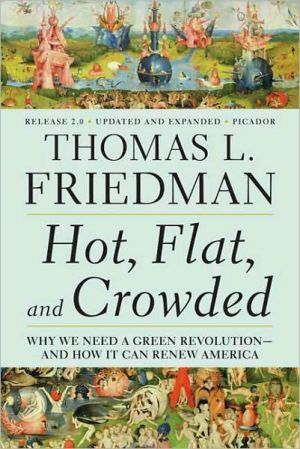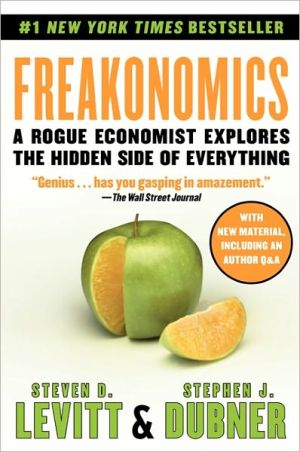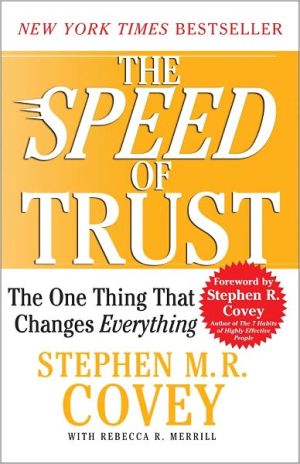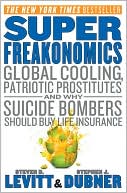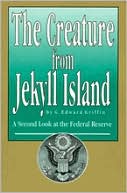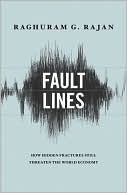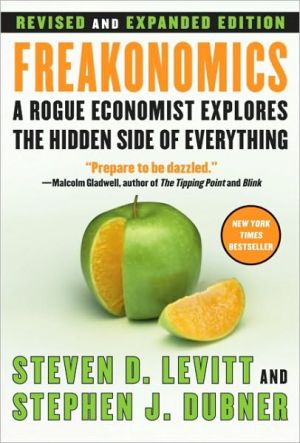Hot, Flat, and Crowded: Why We Need a Green Revolution - and How It Can Renew America
A New York Times Book Review Notable Book of the Year A Washington Post Best Book of the Year A Businessweek Best Business Book of the Year A Chicago Tribune Best Book of the Year\ In this brilliant, essential book, Pulitzer Prize-winning author Thomas L. Friedman speaks to America's urgent need for national renewal and explains how a green revolution can bring about both a sustainable environment and a sustainable America.\ Friedman explains how global warming, rapidly growing populations,...
Search in google:
A rousing manifesto for our climate-challenged future The Washington Post - Joseph S. Nye Jr. Like it or not, we need Tom Friedman. The peripatetic columnist has made himself a major interpreter of the confusing world we inhabit. He travels to the farthest reaches, interviews everyone from peasants to chief executives and expresses big ideas in clear and memorable prose. While pettifogging academics (a select few of whom he favors) complain that his catchy phrases and anecdotes sometimes obscure deeper analysis, by and large Friedman gets the big issues right.
ONE\ Where Birds Don’t Fly "German engineering, Swiss innovation, American nothing."\ Advertising slogan used on a billboard in South Africa by Daimler to promote its Smart "forfour" compact car\ In June 2004, I was visiting London with my daughter Orly, and one evening we went to see the play Billy Elliot at a theater near Victoria Station. During intermission, I was standing up, stretching my legs in the aisle next to my seat, when a stranger approached and asked me, “Are you Mr. Friedman?” When I nodded yes, he introduced himself: “My name is Emad Tinawi. I am a Syrian-American working for Booz Allen," the consulting firm. Tinawi said that while he disagreed with some of the columns I had written, particularly on the Middle East, there was one column he especially liked and still kept.\ “Which one?” I asked with great curiosity.\ “The one called ‘Where Birds Don’t Fly,’" he said. For a moment, I was stumped. I remembered writing that headline, but I couldn’t remember the column or the dateline. Then he reminded me: It was about the newpost-9/11U.S. consulate in Istanbul, Turkey. For years, the U.S. consulate in Istanbul was headquartered in the Palazzo Corpi, a grand and distinctive old building in the heart of the city’s bustling business district, jammed between the bazaars, the domed mosques, and the jumble of Ottoman and modern architecture. Built in 1882, and bought by the U.S. government twenty-five years later, Palazzo Corpi was bordered on three sides by narrow streets and was thoroughly woven into the fabric of Istanbul life. It was an easy place for Turks to get a visa, to peruse the library, or to engage with an American diplomat.\ But as part of the general security upgrade for U.S. embassies and consulates in the post-9/11 world, it was decided to close the consulate at Palazzo Corpi, and in June 2003 a new U.S. consulate was opened in\ Istinye, an outlying district about twelve miles away from the center of the city. “The new 22-acre facilitynearly 15 times as big as the old consulatewas built on a solid rock hill,” a Federal Times article reported (April 25, 2005), adding that “State now requires buildings to have protective walls that are at least 100 feet away from embassies and consulates. Those walls and barriers also must protect against explosions and ramming attacks from vehicles, and they must be difficult to climb. Guard booths are placed at the perimeter of facilities, and windows and doors are bulletproof and resist forced entries. The new buildings are also strong enough to resist most earthquakes and bombs.”\ They are also strong enough to deter most visitors, friends, and allies. In fact, when I first set eyes on the new consulate in 2005, what struck me most was how much it looked like a maximum-security prisonwithout the charm. All that was missing was a moat filled with alligators and a sign that said in big red letters: “Attention! You are now approaching the U.S. consulate in Istanbul. Any sudden movements and you will be shot without warning. all visitors welcome.”\ They could have filmed the Turkish prison movie Midnight Express there.\ But here’s a hard truth: Some U.S. diplomats are probably alive today thanks to this fortress. Because on November 20, 2003, as President George W. Bush was in London meeting with then prime minister Tony Blair, and about six months after the new U.S. consulate in Istanbul had been opened, Turkish Muslim terrorists detonated truck bombs at the HSBC bank and the British consulate in Istanbul, killing thirty people, including Britain’s consul general, and wounding at least four hundred others. The bomb-ravaged British mission was just a short walk from the Palazzo Corpi.\ One of the terrorists captured after the attack reportedly told Turkish police that his group had wanted to blow up the new U.S. consulate, but when they checked out the facility in Istinye, they found it impregnable. A senior U.S. diplomat in Istanbul told me more of the story: According to Turkish security officials, the terrorist said the new U.S. consulate was so secure, “they don’t let birds fly” there. I never forgot that image: It was so well guarded they don’t even let birds fly there . . . (That point was reinforced on July 9, 2008, when Turkish police outside the consulate killed three terrorists apparently trying to breach its walls.)\ Tinawi and I swapped impressions about the corrosive impact such security restrictions were having on foreigners’ perceptions of America and on America’s perceptions of itself. As an Arab-American, he was clearly bothered by this, and he could tell from my column that I was too. Because a place where birds don’t fly is a place where people don’t mix, ideas don’t get sparked, friendships don’t get forged, stereotypes don’t get broken, collaboration doesn’t happen, trust doesn’t get built, and freedom doesn’t ring. That is not the kind of place we want America to be. That is not the kind of place we can afford America to be. An America living in a defensive crouch cannot fully tap the vast rivers of\ idealism, innovation, volunteerism, and philanthropy that still flow through our nation. And it cannot play the vital role it has long played for the rest of the worldas a beacon of hope and the country that can always be counted on to lead the world in response to whatever is the most important challenge of the day. We need that Americaand we need to be that America—more than ever today.\ This is a book about why.\ The core argument is very simple: America has a problem and the world has a problem. America’s problem is that it has lost its way in recent yearspartly because of 9/11 and partly because of the bad habits that we have let build up over the last three decades, bad habits that have weakened our society’s ability and willingness to take on big challenges. The world also has a problem: It is getting hot, flat, and crowded. That is, global warming, the stunning rise of middle classes all over the world, and rapid population growth have converged in a way that could make our planet dangerously unstable. In particular, the convergence of hot, flat, and crowded is tightening energy supplies, intensifying the extinction of plants and animals, deepening energy poverty, strengthening petrodictatorship, and accelerating climate change. How we address these interwoven global trends will determine a lot about the quality of life on earth in the twenty-first century.\ I am convinced that the best way for America to solve its big problem the best way for America to get its “groove” back is for us to take the lead in solving the world’s big problem. In a world that is getting hot, flat, and crowded, the task of creating the tools, systems, energy sources, and ethics that will allow the planet to grow in cleaner, more sustainable ways is going to be the biggest challenge of our lifetime. But this challenge is actually an opportunity for America. If we take it on, it will revive America at home, reconnect America abroad, and retool America for tomorrow. America is always at its most powerful and most influential when it is combining innovation and inspiration, wealth-building and dignity-building, the quest for big profits and the tackling of big problems. When we do just one, we are less than the sum of our parts.\ When we do both, we are greater than the sum of our partsmuch greater.\ But it’s not just an opportunity, either: it’s also a test. It’s a test of whether we are able and willing to lead. Whether you love us or hate us, whether you believe in American power or you don’t, the convergence of hot, flat, and crowded has created a challenge so daunting that it is impossible to imagine a meaningful solution without America really stepping up. “We are either going to be losers or heroesthere’s no room anymore for anything in between,” says Rob Watson, CEO of EcoTech International and one of the best environmental minds in America.\ Yes, either we are going to rise to the level of leadership, innovation, and collaboration that is required, or everybody is going to losebig. Just coasting along and doing the same old things is not an option any longer. We need a whole new approach. As they say in Texas: “If all you ever do is all you’ve ever done, then all you’ll ever get is all you ever got.”The simple name for the new project I am proposing is “Code Green.” What “red” was to America in the 1950s and 1960sa symbol of the overarching Communist threat, the symbol that was used to mobilize our country to build up its military, its industrial base, its highways, its railroads, ports, and airports, its educational institutions, and its scientific capabilities to lead the world in defense of freedom we need "green” to be for today’s America.\ Unfortunately, after 9/11, instead of replacing red with green, President George W. Bush replaced red with “Code Red” and all the other crazy colors of the Department of Homeland Security’s warning system. It’s time to scrap them all and move to Code Green. Of course, I am not calling for a return to anti-Communist witch hunts and McCarthyismjust to the seriousness and determination to build a society that can face the overarching threat of our day. For me, going Code Green means making America the World’s leader in innovating clean power and energy-efficiency systems and inspiring an ethic of conservation toward the natural world, which is increasingly imperiled. We’re going to need both massive breakthroughs in clean power and a deeper respect for the world’s forests, oceans, and biodiversity hot spots if we’re going to thrive in this new age.\ The first half of this book is a diagnosis of the unique energy, climate, and biodiversity challenges the world faces. The second half is an argument about how we can meet those challenges. I would be less than truthful, though, if I said I think America, as it operates today, is ready for this mission. We are not. Right now, we don’t have the focus and persistence to take on something really big, where the benefits play out over the long term. But I believe that all that could change with the right leadership local, state, and federalproperly framing how much we have to gain by rising to this moment and how much we have to lose by failing to do so. Americans intuit that we’re on the wrong track and that we need a course correction, and fast. Indeed, when I think of our situation, I am reminded of the movie The Leopard, based on the novel of the same name by Giuseppe Tomasi di Lampedusa. It is set in nineteenth-century Italy, at a time of enormous social, political, and economic turmoil. The main character is the Sicilian prince Don Fabrizio of Salina (played by Burt Lancaster). Don Fabrizio understands that he and his family will have to adapt if they want the House of Salina to retain its leadership in a new era, where social forces from below are challenging the traditional power elites. Nevertheless, Prince Salina is bitter and uncompromising“We were the leopards, the lions; those who take our place will be jackals and sheep.”The wisest advice he gets comes from his nephew Tancredi (played by Alain Delon), who marries a wealthy shopkeeper’s daughter from the new moneyed middle class, and along the way cautions his uncle: “If we want things to stay as they are, things will have to change.”And so it is with America. The era we are entering will be one of enormous social, political, and economic changedriven in large part from above, from the sky, from Mother Nature. If we want things to stay as they arethat is, if we want to maintain our technological, economic, and moral leadership and a habitable planet, rich with flora and fauna, leopards and lions, and human communities that can grow in a sustainable waythings will have to change around here, and fast.\ Excerpted from Hot, Flat, and Crowded: Why We Need a Green Revolution and How It Can Renew America by Thomas L Friedman\ Copyright © 2008 by Thomas L. Friedman\ Published in September 2008 by Farrar, Straus and Giroux, LLC\ All rights reserved. This work is protected under copyright laws and reproduction is strictly prohibited. Permission to reproduce the material in any manner or medium must be secured from the Publisher.
Pt. I Where We Are1 Where Birds Don't Fly 32 Today's Date: 1 E.C.E. Today's Weather: Hot, Flat, and Crowded 26Pt. II How We Got Here3 Our Carbon Copies (or, Too Many Americans) 534 Fill'Er Up with Dictators 775 Global Weirding 1116 The Age of Noah 1407 Energy Poverty 1548 Green Is the New Red, White, and Blue 170Pt. III How We Move Forward9 205 Easy Ways to Save the Earth 20310 The Energy Internet: When IT Meets ET 21711 The Stone Age Didn't End Because We Ran Out of Stones 24112 If It Isn't Boring, It Isn't Green 26713 A Million Noahs, a Million Arks 29714 Outgreening al-Qaeda (or, Buy One, Get Four Free) 317Pt. IV China15 Can Red China Become Green China? 343Pt. V America16 China for a Day (but Not for Two) 37117 A Democratic China, or a Banana Republic? 395Acknowledgments 415Index 423
\ From Barnes & NobleA wag once quipped that Thomas Friedman's bountiful bestseller The World Is Flat calmed the storms about globalization. In his latest effort, the influential New York Times Op-Ed columnist presses his case that Green is the new Red, White, and Blue. Friedman argues that environmentalism isn't just a survival imperative; it's the best way to make America richer, more productive, and, not least, more secure. Spanning the globe, he presents case study after case study that shows that Green-oriented practices and technologies are the key to revitalizing our country and stabilizing an increasingly energy-starved world.\ \ \ \ \ David G. VictorThe litany of dangers has been told many times before, but Mr. Friedman's voice is compelling and will be widely heard…Heads will be nodding across airport lounges, as readers absorb Mr. Friedman's common sense about how America and the world are dangerously addicted to cheap fossil fuels while we recklessly use the atmosphere as a dumping ground for carbon dioxide.\ —The New York Times\ \ \ Joseph S. Nye Jr.Like it or not, we need Tom Friedman. The peripatetic columnist has made himself a major interpreter of the confusing world we inhabit. He travels to the farthest reaches, interviews everyone from peasants to chief executives and expresses big ideas in clear and memorable prose. While pettifogging academics (a select few of whom he favors) complain that his catchy phrases and anecdotes sometimes obscure deeper analysis, by and large Friedman gets the big issues right.\ —The Washington Post\ \ \ \ \ Publishers WeeklyPulitzer Prize-winning New York Times columnist Friedman (The World Is Flat) is still an unrepentant guru of globalism, despite the looming economic crisis attributable, in Friendman's view, to the U.S. having become a "subprime nation that thinks it can just borrow its way to prosperity." Friedman covers familiar territory (the need for alternate energy, conservation measures, recycling, energy efficiency, etc.) as a build-up to his main thesis: the U.S. market is the "most effective and prolific system for transformational innovation.... There is only one thing bigger than Mother Nature and that is Father Profit." While he remains ostensibly a proponent of the free market, he does not flinch from using the government to create conditions favorable to investment, such as setting a "floor price for crude oil or gasoline," and imposing a new gasoline tax ($5-$10 per gallon) in order to make investment in green technologies attractive to venture capitalists: "America needs an energy technology bubble just like the information technology bubble." To make such draconian measures palatable, Friedman poses a national competition to "outgreen" China, modeled on Kennedy's proposal to beat the Soviets to the moon, a race that required a country-wide mobilization comparable to the WWII war effort. Recognizing the looming threat of "petrodicatorship" and U.S. dependence on imported oil, this warning salvo presents a stirring and far-darker vision than Friedman's earlier books. \ Copyright © Reed Business Information, a division of Reed Elsevier Inc. All rights reserved.\ \ \ \ \ Library JournalThe audio edition of three-time Pulitzer® Prize winner/New York Times columnist Friedman's The World Is Flat, which won an Audie® Award in 2006, remains Macmillan Audio's top-selling title of all time. Audie® Award-winning actor/narrator Oliver Wyman, who skillfully voiced that title, does the same with this one, in which Friedman addresses the triple threat of global warming, overconsumption, and population explosion not just to the environment but to political stability and the economy. The currency and gravity of this topic cannot be overstated; regardless of their political leanings, readers will sit up and listen. Highly recommended for all library collections; expect heavy demand. [Audio clip available through us.macmillan.com.-Ed.]—Risa Getman\ \ \ \ \ Kirkus ReviewsThe world is flat, New York Times columnist Friedman told us in his bestselling 2005 book of that name. Now things are getting worse, and the clock is ticking. Americans have squandered most of the goodwill extended since 9/11, writes Friedman, and in the years of the Bush administration no thought has been given to what 9/12 is supposed to look like. The climate is changing, but the administration has spent most of its tenure denying it and insisting on a particularist view that we deserve to be profligate because we're Americans. Our political blindness and ignorance vis-a-vis other nations now butts up against the world's instability and, Friedman continues, "the convergence of hot, flat, and crowded is tightening energy supplies, intensifying the extinction of plants and animals, deepening energy poverty, strengthening petrodictatorship, and accelerating climate change." The way out of those tangles, he says, is for America to go green in any way possible-and to do it right away, investing in every kind of alternative and renewable energy form imaginable, setting the best of examples for the rest of the world and exporting green technologies everywhere, thus winning back allies and influencing people. Readers who have been paying attention to Fareed Zakaria, Jared Diamond or similar writers know most of this, but still the word has been slow getting out. Many others have written about these subjects, but few enjoy Friedman's audience, so it's good that he's turning to such matters, if a touch belatedly. His case studies-from New York City Mayor Michael Bloomberg's insistence on a fleet of hybrid taxis on the street to British firm Marks & Spencer's insistence that going green is PlanA and that "there is no Plan B" -are well-selected, detailed and, in the end, quite inspiring. That inspiration is needed, along with a lot of hard work. A timely, rewarding book. Agent: Esther Newberg/ICM\ \ \ \ \ From the Publisher"At the intersection of leveled economic and technological access (flat) with an aggravated environment (hot), and a surging population (crowded), Friedman stands upon his pulpit as preacher, prophet, and promoter of a green revolution starting in the United States. He provides an exhaustive, impressive, and convincing argument about the need for the United States to transition to more sustainable systems of energy soon or else risk any possible chance of maintaining hegemony. His ability to identify and summarize succinctly the issues and controversies over resistance to a green revolution is matched by his clear and definitive solutions to these forthcoming problems. Oliver Wyman provides a congenial and gentle voice that works well with the text.... He navigates the quoted text of this book with a distinguishing voice that sometimes hints at personality traits not referred to in the text. Impressively, Wyman keeps his consistency of cadence and tone throughout the entire reading."—Publishers Weekly, Starred Review “Hot, Flat, and Crowded is a cri de Coeur, an impassioned appeal, read with equal zeal by Oliver Wyman…Cogent, persuasive, fascinating in its scope, Friedman’s call to arms will make you ask what kind of America you want for yourself and your children.” – BookPage, Sukey’s favorite Praise for The World is Flat—winner of the 2006 Audie award for best nonfiction:“Narrator Oliver Wyman does a superb job...The audiobook technology that enables us to take in so much information while caught in traffic or scrubbing a pan is precisely the sort of handhold Friedman would urge us all to grasp, and with both hands."—AudioFile “[This book’s] insight is true and deeply important.... The metaphor of a flat world, used by Friedman to describe the next phase of globalization, is ingenious.... [His method] works in making complicated ideas accessible.”—The New York Times Book Review “This book showcases Friedman’s gift for lucid dissections of abstruse economic phenomena, his teacher’s head, his preacher’s heart, his genius for trend-spotting.” —The Washington Post “No one today chronicles global shifts in simple and practical terms quite like Friedman. He plucks insights from his travels and the published press that can leave you spinning like a top.”—The Christian Science Monitor\ “Wyman successfully faces the difficult demands of conveying Friedman’s concerns while maintaining listener interest in the information-rich text. His youthful, conversational delivery is engaging and, in fact, seems to subtly echo Friedman’s own speech patterns.” – Booklist\ \ \
